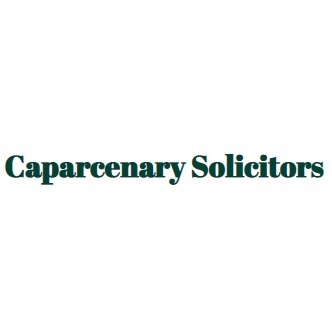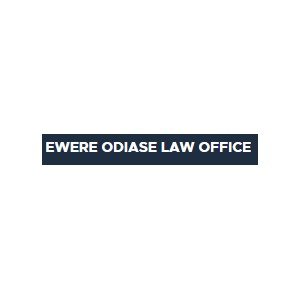Best Mining Law Lawyers in Asaba
Share your needs with us, get contacted by law firms.
Free. Takes 2 min.
List of the best lawyers in Asaba, Nigeria
About Mining Law in Asaba, Nigeria
Mining Law in Asaba, Nigeria, is governed by a framework of local and federal regulations designed to manage the exploration, extraction, and processing of mineral resources. The principal legislation overseeing mining activities in Nigeria is the Nigerian Minerals and Mining Act 2007, which sets out the legal and operational guidelines for mining companies and individuals involved in mining-related activities. In Asaba, the capital of Delta State, mining law addresses a variety of concerns, including land acquisition, licensing, environmental protection, community development, and revenue sharing. Because mining can have significant environmental and socioeconomic impacts, authorities in Asaba work to ensure that mining operations comply with relevant laws to promote sustainable and responsible resource management.
Why You May Need a Lawyer
Mining Law involves complex regulations and multiple stakeholders, making legal representation essential for many individuals and businesses. You may need a lawyer in the following situations:
- Obtaining licenses and permits for exploration or mining activities
- Negotiating and drafting agreements related to mining operations
- Resolving land ownership or land use disputes
- Addressing compensation for local communities affected by mining activities
- Navigating environmental compliance requirements and regulatory inspections
- Dealing with government agencies for tax, royalties, and reporting obligations
- Handling contractual disputes or partnership disagreements
- Understanding changes in mining laws, policies, or local government regulations
- Assisting with due diligence for mergers, acquisitions, or investments in mining projects
- Responding to administrative, civil, or criminal proceedings linked to mining activities
Local Laws Overview
Mining operations in Asaba, Nigeria, are subject to federal, state, and local regulations. The Nigerian Minerals and Mining Act 2007 is the principal law, but local implementation through Delta State authorities is crucial. Key aspects include:
- Licensing: Multiple licenses are required for different stages, such as reconnaissance permits, exploration licenses, and mining leases. Applications typically go through the Ministry of Mines and Steel Development and may also require clearance from state or local government authorities.
- Land Rights: While mineral rights belong to the government, surface rights and land use often involve negotiations with local landowners and communities. Compensation may be payable for land acquisition or disturbance.
- Environmental Regulations: Environmental Impact Assessments (EIA) are mandatory before commencing mining. Compliance with the National Environmental Standards and Regulations Enforcement Agency (NESREA) and the Department of Petroleum Resources (for relevant minerals) is also required.
- Community Development: Mining companies are expected to contribute to local development, gain community consent, and comply with terms outlined in community development agreements.
- Royalties and Taxes: Operators must pay royalties to the federal government and may have additional tax obligations to Delta State and local governments. Proper financial reporting is essential to avoid penalties.
- Conflict Resolution: Disputes involving land, compensation, or partnership issues are common and can be resolved through negotiation, mediation, or litigation in Nigerian courts.
Frequently Asked Questions
What is the process for obtaining a mining license in Asaba, Nigeria?
Applicants must approach the Mining Cadastre Office, submit required documentation, and comply with relevant regulations before a license or lease can be granted. Applicants may need to engage with state and local authorities during the process.
Are there restrictions on foreign ownership of mining rights?
Foreigners can own mining rights in Nigeria, but must register a Nigerian company and comply with corporate and sector-specific regulations. Certain strategic minerals may have additional restrictions.
What types of mining licenses are available in Nigeria?
Common licenses include Reconnaissance Permits, Exploration Licenses, Small Scale Mining Leases, Mining Leases, and Quarry Leases. Each serves a different stage or scale of mining activity.
Can individuals or companies mine without a license?
No. Mining without the appropriate license is illegal and may result in penalties, seizure of equipment, and criminal prosecution.
What environmental regulations apply to mining in Asaba?
Operators must carry out Environmental Impact Assessments and comply with federal and state environmental standards. Monitoring and remediation plans are usually mandated as part of the licensing process.
How are communities compensated for the impact of mining?
Mining companies are generally required to compensate communities for land acquisition, environmental impacts, and support local development through signed agreements and statutory payments.
What government agencies oversee mining in Asaba?
Key agencies include the Ministry of Mines and Steel Development, the Mining Cadastre Office, the Nigerian Mining Corporation, Delta State Ministry of Environment, and local government authorities.
How are disputes in mining operations resolved?
Disputes can be resolved through internal negotiations, third-party mediation, arbitration, or by proceeding to the appropriate courts in Nigeria.
What taxes and royalties must mining operators pay?
Operators must pay federal royalties based on mineral type and quantity, as well as income tax, Value Added Tax (VAT), and state-level taxes or levies as applicable.
What should I do if my land is affected by mining activities?
You should seek legal advice immediately, document all impacts, engage with community leaders or local government officials, and initiate compensation discussions or legal proceedings if necessary.
Additional Resources
If you require more information or assistance, consider reaching out to the following resources:
- Nigerian Ministry of Mines and Steel Development
- Mining Cadastre Office (Abuja headquarters, but also with regional presence)
- Delta State Ministry of Environment
- National Environmental Standards and Regulations Enforcement Agency (NESREA)
- Nigerian Mining and Geosciences Society (NMGS)
- Local Bar Associations (e.g., Nigerian Bar Association, Asaba Branch)
- Legal Aid Council of Nigeria
- Community Development Associations in Delta State
Next Steps
If you need legal assistance relating to Mining Law in Asaba, Nigeria:
- Identify the specific nature of your issue (e.g., licensing, land, compensation, environmental compliance).
- Gather all relevant documentation, including permits, correspondence, contracts, title deeds, and evidence of impact.
- Contact a lawyer or law firm specializing in mining or natural resources law in Asaba or Delta State.
- Consult with the appropriate government agencies if your matter involves regulatory compliance or disputes.
- If you cannot afford private legal services, seek help from the Legal Aid Council of Nigeria or local bar associations for pro bono or reduced-fee representation.
- Regularly monitor updates and changes in laws or policies relating to mining through official channels and reputable organizations.
Taking timely action with the right legal support is crucial for protecting your rights, complying with the law, and achieving successful outcomes in mining-related matters in Asaba, Nigeria.
Lawzana helps you find the best lawyers and law firms in Asaba through a curated and pre-screened list of qualified legal professionals. Our platform offers rankings and detailed profiles of attorneys and law firms, allowing you to compare based on practice areas, including Mining Law, experience, and client feedback.
Each profile includes a description of the firm's areas of practice, client reviews, team members and partners, year of establishment, spoken languages, office locations, contact information, social media presence, and any published articles or resources. Most firms on our platform speak English and are experienced in both local and international legal matters.
Get a quote from top-rated law firms in Asaba, Nigeria — quickly, securely, and without unnecessary hassle.
Disclaimer:
The information provided on this page is for general informational purposes only and does not constitute legal advice. While we strive to ensure the accuracy and relevance of the content, legal information may change over time, and interpretations of the law can vary. You should always consult with a qualified legal professional for advice specific to your situation.
We disclaim all liability for actions taken or not taken based on the content of this page. If you believe any information is incorrect or outdated, please contact us, and we will review and update it where appropriate.











